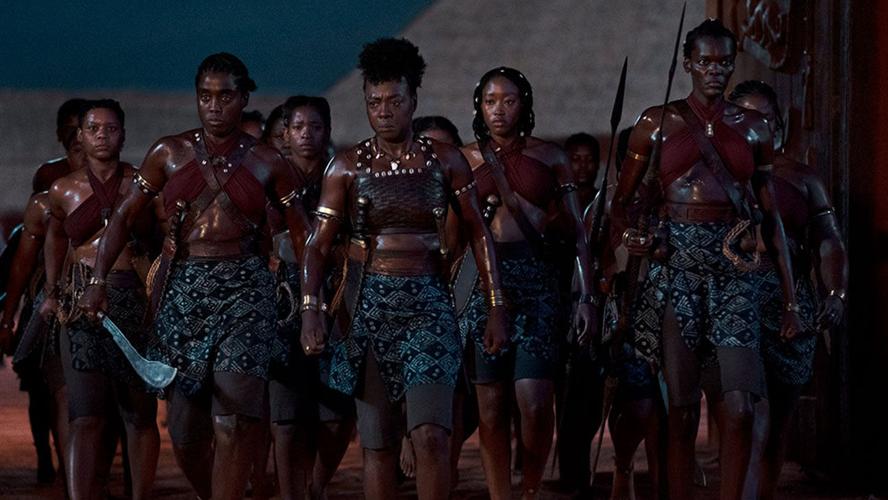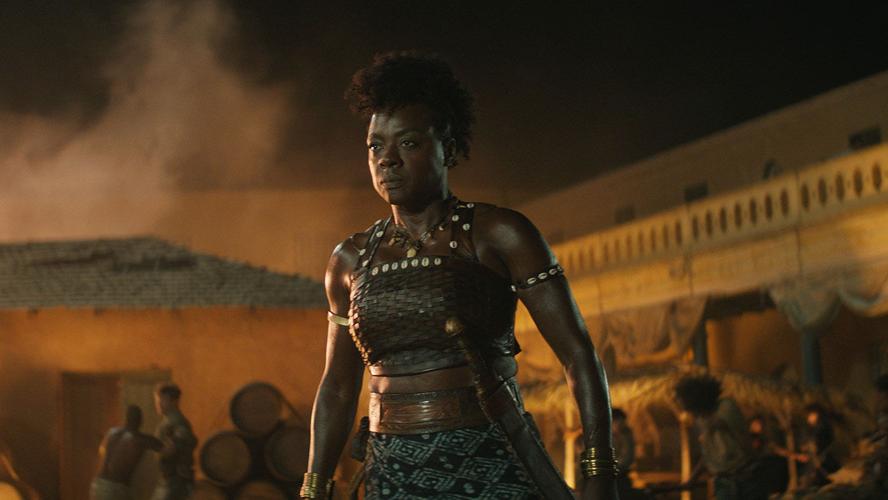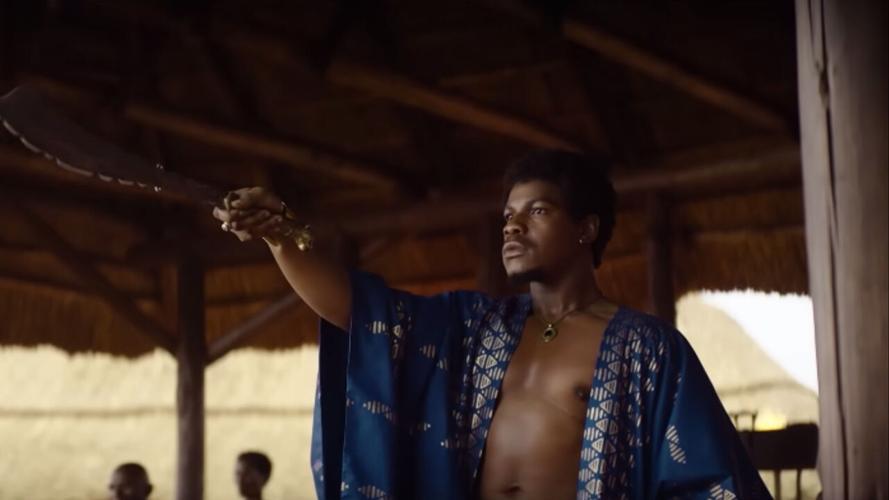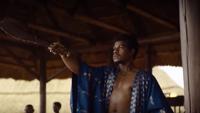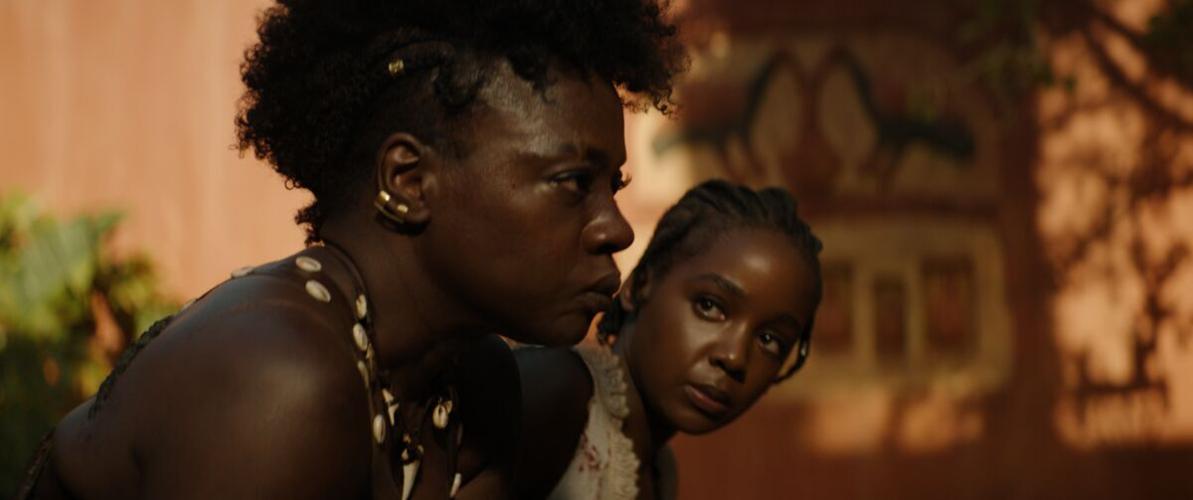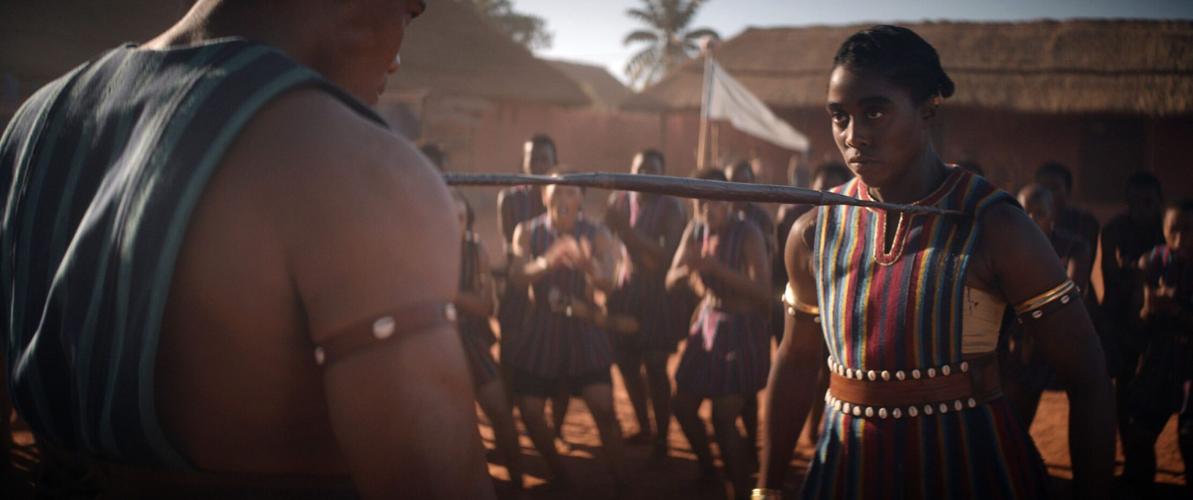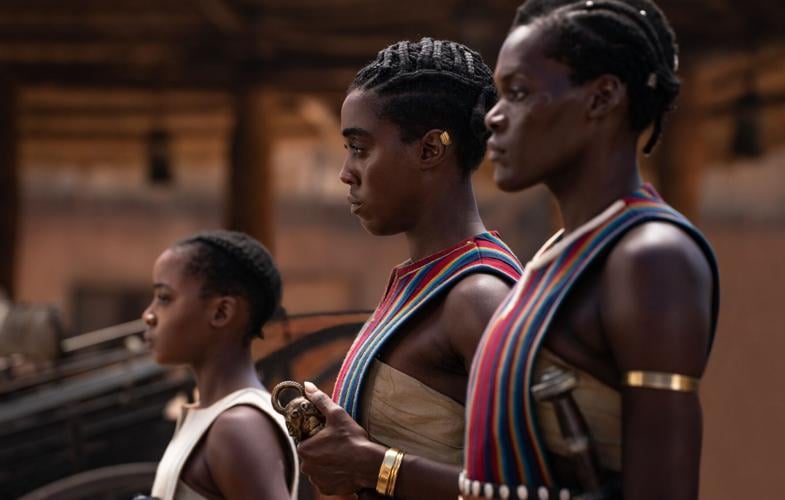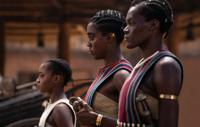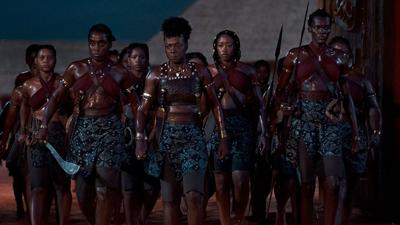Editor’s note: The views and opinions expressed in this review are solely those of Marlon Wallace and do not necessarily reflect the views and opinions of WBOC.
This film is about a country in West Africa, known as Benin. The film takes place in 1853 when Benin was called the Kingdom of Dahomey. It’s a coastal country. Starting in the 17th century, it became well known for the amount of slaves that were trafficked on its shores. The Oyo Empire was an African group that lived in the neighboring country, now known as Nigeria. The Oyo Empire frequently attacked and raided Dahomey. The kingdom fought back using an all-female army, women soldiers who were an elite and aggressive force. The king of this country often sold their war captives into the Atlantic slave trade. Selling slaves made the king a very wealthy man. That king made so much money in chattel slavery that his country was nicknamed the “Slave Coast.” The country sold lots of its slaves to Portuguese countries like Brazil before it was eventually colonized by France in 1892.
Directed by Gina Prince-Bythewood, this film explores the history of Benin and dramatizes it into an action or historical epic that many have compared to Braveheart (1995) and Gladiator (2000). Both those films won the Academy Award for Best Picture. This film warrants those comparisons because this film is absolutely on that same level. The only difference is the gender, as well as the race. These kinds of historical epics from Hollywood focus on male characters of European descent. In fact, there’s so many of them that they’ve constituted their own genre. Filmmaking parlance refers to them as “sword and sandal” films. Other terms include “peplum” or “Maciste” films. Most of those films were set during the Bronze Age, such as that of Ancient Greece, but some of those films go all the way up to the Industrial Revolution, but they involve characters who mainly fight with swords.

THE WOMAN KING, Viola Davis, 2022. © TriStar Pictures /Courtesy Everett Collection
Violet Davis (Ma Rainey’s Black Bottom and Fences) stars as Nanisca, a general who is the head of the Agojie, the all-female army that protects the Kingdom of Dahomey. The idea of an all-female army is something that was seen in Greek mythology. The Amazons are the prime example. That all-female army was depicted in the super-hero flick Wonder Woman (2017). Nanisca is a very tough woman who has literally been scarred in battle numerous times, but she wears her scars with honor and pride. She’s very loyal to her king, but she enjoys living her life, surrounded by the women of the Agojie who are forbidden from having a husband or having children. The Agojie are a beautiful, harmonious community, but, at the end of the day, they are a military force and Nanisca rules over them like a drill sergeant when she must.
She’s pretty much in line with the king. The only thing with which she disagrees is the fact that the king is getting rich off slavery, slavery that at times requires selling their own people. Nanisca wants to end her country’s practice of participating in slavery. Often times, in the depiction of slavery, we only see how slavery was implemented in the Americas and the cruelty and racism of the European slave-owners. This depiction was and is vital, but what has been often lost in the history is how Africans and African rulers helped the Europeans. Plenty of Africans betrayed their own people in order to sell them as slaves. This film confronts that issue directly and does so powerfully.

John Boyega, who was just in a film released in the previous week called Breaking (2022), co-stars as King Ghezo, the king of Dahomey. He seems firm but fair. He doesn’t walk around wearing a crown. He seems very relatable. He does have multiple wives and is probably the only person in Dahomey allowed to be polygamous. He can be domineering over his wives, but he doesn’t come across as completely sexist. He obviously respects Nanisca and all the members of the Agojie, but he does expect them to obey him and follow his orders. There is a part of him that wants to be feared. This might be because of the fact that he’s so young. He’s not so arrogant that he won’t listen to his council, but he also doesn’t really seem bothered by the slavery that’s occurring in his kingdom and often by his orders.
The film has a lot of its tension between Nanisca and Ghezo as they struggle to address this issue of slavery. Ghezo is open to changing the country’s ways, but there is a concern that the financial benefits could hurt him and the country. Nanisca has other financial options. She shows him that they could make money developing and selling palm oil. This film doesn’t go into the value of palm oil. It takes for granted that people would know it even is. If one doesn’t, palm oil is good for cooking, for making soap and for lubricating machinery. At the same time, Nanisca has to prepare her troops for attacks from the Oyo Empire, which has continued to threaten Dahomey.

Thuso Mbedu (The Underground Railroad) also co-stars as Nawi, a young woman living in Dahomey. It’s not clear how old she is, but she seems like she could be a teenager or maybe in her early 20’s. Her father wants to marry her off in an arranged marriage that’s probably common in Dahomey, but Nawi rejects it. It’s not that she’s against the concept of an arranged marriage. It’s simply the man her father chooses is too old for her and not attractive at least in her eyes. She might have had a different reaction if the handsome king had offered. She later admits that she’s more intrigued with becoming a warrior.
The main thrust of this film is watching Nawi train, as she tries to become a member of the Agojie. That thrust is akin to training sequences one would see in a film about the military or even in a film about a sports athlete. Nawi goes through that same kind of training. The physical challenges she has to overcome are viscerally and brutally shot to the point where one feels all the pain that Nawi feels and where every scar is felt as well.

THE WOMAN KING, Lashana Lynch, 2022. © TriStar Pictures /Courtesy Everett Collection
Lashana Lynch (No Time to Die and Captain Marvel) also co-stars as Izogie, one of the best soldiers in the Agojie. She becomes a veritable mentor for Nawi. Speaking of feeling the pain of the characters, that’s exemplified in Izogie. Yet, she isn’t just a hardened soldier. She’s also very charming and quite funny, even in small and subtle ways. She gives Nawi a hard time but in a playful way. Her friendship with Nawi becomes a centerpiece in this film. It’s very heartfelt and compelling.
What’s also a centerpiece are the action scenes in this film. Prince-Bythewood isn’t known for her action. This is only her fifth feature. She made the switch to action with her previous film The Old Guard (2020). There’s some parallels here to The Old Guard in that it was also about a young Black girl who joins an elite, fighting force. Yet, the action here is much better. Its verisimilitude is much better. The violence is more intense, not just in the blood and gore, but the physicality feels more authentic and guttural.

Thuso Mbedu as Nawi (left), Lashanna Lynch as Izogie and Sheila Atim as Amenza in “The Woman King.”
Rounding out the cast includes Sheila Atim (The Underground Railroad) who plays Amenza, Nanisca’s advisor and confidant, as well as Jordan Bolger (Peaky Blinders and The Book of Boba Fett) who plays Malik, the biracial Brazilian who travels to Dahomey with the slave traders. They, along with all the other supporting actors, provide a rich fabric and tapestry here. The Agojie were the inspiration for the female army in the Oscar-winning blockbuster Black Panther (2018). It will be interesting to see how the female army is portrayed in that blockbuster’s sequel Wakanda Forever (2022), but I feel it will be difficult to top what we see here.
Rated PG-13 for strong violence, some disturbing material, brief language and partial nudity.
Running Time: 2 hrs. and 15 mins.
In theaters.

